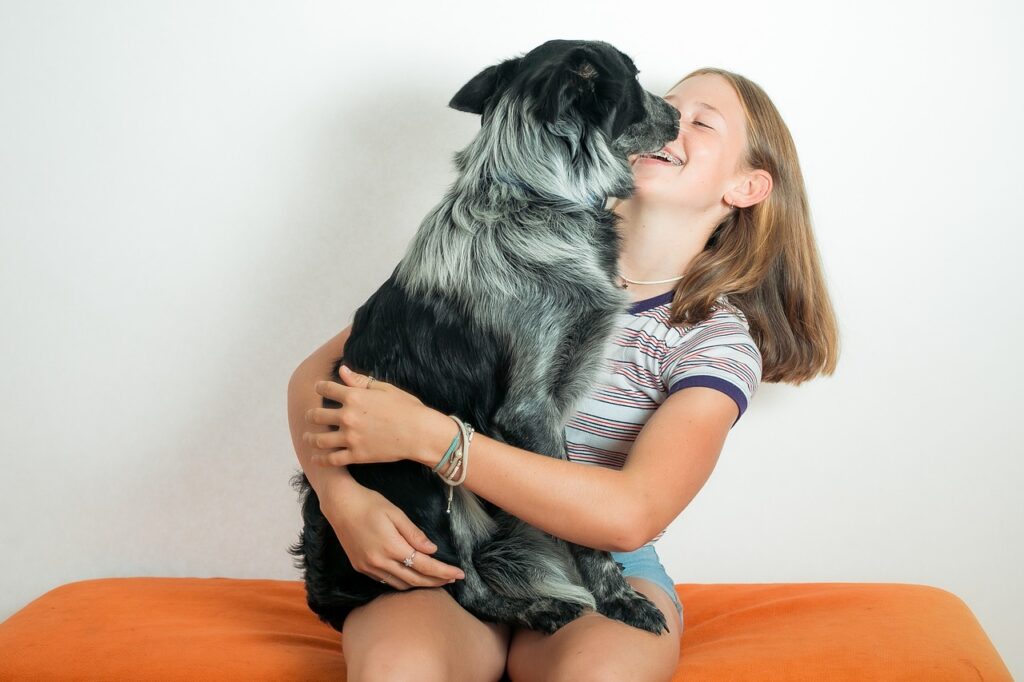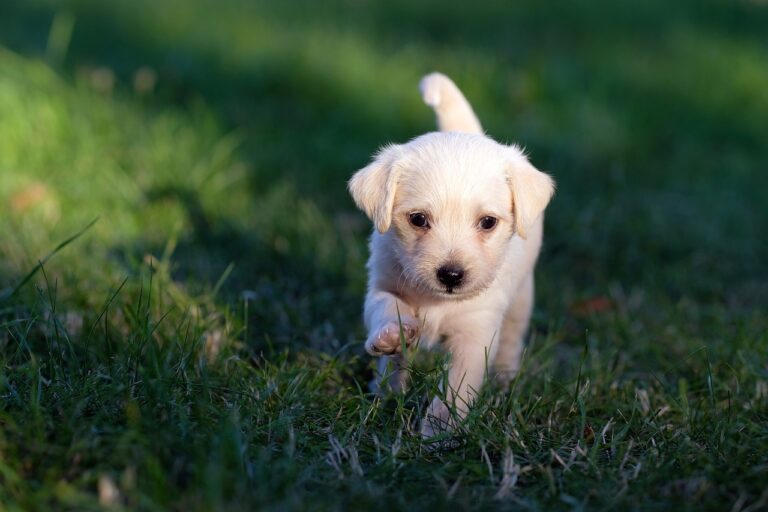
Why Do Dogs Lick Us? Understanding This Common Canine Behavior

If you’re a dog owner, you’ve likely experienced the feeling of your furry friend eagerly licking your hands, face, or even feet. While it may seem like a simple gesture, the reasons behind this behavior are more complex and varied than most people realize. From showing affection to signaling submission, licking is a multi-faceted behavior that can communicate a range of emotions and needs. In this article, we will explore the main reasons why dogs lick us and whether this behavior should concern you.
1. Licking as a Sign of Affection
One of the most common reasons dogs lick humans is to show affection. Dogs are known for being loyal and affectionate animals, and licking is their way of expressing love and bonding. This behavior mimics the grooming actions they would perform on their pack members or other animals in the wild. When a dog licks you, it may simply be trying to communicate that they care for you and view you as a close companion.
Dogs lick their owners as a way to strengthen the bond between them, and this behavior is particularly prominent in puppies who are developing social bonds with their human caregivers. In many cases, the more a dog licks, the more it is trying to convey its love and appreciation. If your dog is licking you enthusiastically, it’s a sign that they enjoy your company and want to show you affection.
2. Licking for Communication
Dogs may also lick as a form of communication. Just like barking or whining, licking can be a dog’s way of sending a message. This behavior may occur when your dog is trying to get your attention, especially if they want something, such as food, playtime, or affection. Dogs often lick their owners’ faces or hands to initiate interaction, seeking a response to their cues.
For example, if you’re eating dinner, and your dog starts licking your hands or face, it may be their way of saying, “Hey, I want some of that!” Similarly, licking might be a subtle request for you to pet them or to give them more attention. Understanding the context of the licking can help you better interpret your dog’s needs.
3. Licking as a Form of Submission
Licking can also be an expression of submission, especially when a dog licks your face or hands. In the wild, dogs (and their ancestors, like wolves) often show submission to the dominant members of their pack through licking. This behavior helps them signal to the dominant dog that they are not a threat and acknowledge the pack hierarchy.
When your dog licks you, they may be trying to demonstrate respect or submission. This is especially common in puppies, who instinctively understand that licking is a way to show deference to more experienced or dominant pack members. Even adult dogs may engage in this behavior if they feel a strong bond with you or view you as a figure of authority.
4. Licking for Stress Relief or Comfort
Licking can also serve as a way for dogs to self-soothe in stressful or anxious situations. Dogs often lick their owners when they’re feeling uneasy, and this behavior may help calm them down. For some dogs, licking acts as a form of self-comfort, similar to how humans might bite their nails or pace when stressed.
If your dog is licking you more than usual, it may be a sign that they are feeling anxious or stressed. Situations like changes in the household, moving to a new home, or meeting unfamiliar people or animals can trigger this behavior. It’s important to observe your dog’s body language and look for other signs of stress, such as trembling, panting, or excessive barking.
5. Licking to Explore the Environment
Dogs also use their mouths and tongues to explore the world around them. Puppies, in particular, are highly curious and will lick to investigate new objects, people, or environments. This behavior is natural and serves as a way for dogs to gather information. Just as they might sniff a new person or place, licking is another method they use to learn more about their surroundings.
When dogs lick their owners, they might be trying to gather information about your scent, taste, or even emotions. Dogs have an incredibly sensitive sense of taste and smell, and by licking, they are exploring your unique scent and what you might be eating or carrying on your skin.
6. Licking as a Grooming Behavior
Dogs also lick us as part of their grooming habits. Just like they would lick their own fur to keep it clean, they may lick you as a way of taking care of you, especially if they feel a strong bond. This behavior is more commonly seen in close relationships between dogs and humans, where the dog sees you as a member of their “pack.”
When a dog licks you in this context, it’s similar to how they might lick the fur of other dogs or even their own body. It’s their way of showing care and maintaining cleanliness, and it’s often seen in dogs that have a particularly close relationship with their owners.
7. Licking Due to Medical Reasons
While licking is generally a harmless behavior, in some cases, excessive licking may be a sign of an underlying medical issue. Dogs may lick excessively due to allergies, skin infections, or other health problems. If your dog is licking a particular area of their body, such as their paws or legs, it may indicate an irritation or discomfort that needs attention.
In some cases, dogs may lick their owners excessively due to gastrointestinal issues or nausea. If your dog is licking you more than usual and showing other signs of illness, such as vomiting, diarrhea, or changes in appetite, it’s important to take them to the vet for a check-up.
How to Respond to Licking
Now that you understand why dogs lick, it’s essential to know how to respond to this behavior. In most cases, licking is a sign of affection, and there’s no need to stop it. However, if your dog’s licking becomes excessive or problematic, there are a few steps you can take:
- Redirect Their Attention: If your dog is licking excessively and you want them to stop, try redirecting their attention to something else, like a toy or treat. This will help break the cycle and give them something else to focus on.
- Offer Positive Reinforcement: If your dog licks you for affection or to get attention, be sure to reinforce the positive behavior with praise or petting. This will encourage them to continue bonding with you in a positive way.
- Address Stress or Anxiety: If licking is a sign of stress or anxiety, try to address the root cause. Provide your dog with a calming environment, ensure they have enough exercise, and consider using products designed to reduce anxiety in dogs, such as calming collars or pheromone diffusers.
- Visit the Veterinarian: If you notice any signs of medical issues associated with your dog’s licking, such as skin irritation, allergies, or gastrointestinal problems, consult your vet for advice and treatment.





